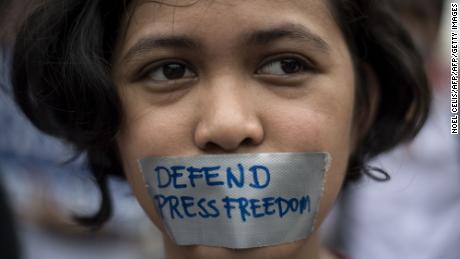Asia's strongmen follow Trump's lead on fake news
(CNN)"Spies." An "iceberg of misinformation," and "a media that acts as a mafia."
And, of course, "fake news."
These are some of the terms leaders across Southeast Asia are using to discredit journalists and media outlets -- and the rhetoric is morphing into action, with arrests of journalists and the shuttering of news sites across the region.
In the Philippines, an independent news site, which has been accused of being "fake news" by the country's leader, Rodrigo Duterte, faces closure after the country's SEC pulled its license.
Elsewhere, two journalists in Myanmar are facing charges filed while they were reporting on the Rohingya crisis for Reuters. In nearby Cambodia, a US-funded news organization shut its local bureau down; shortly after, two of its former reporters were arrested.
Analysts and observers say Asia's strongman leaders have been emboldened by the lack of criticism of their heavy-handed tactics from Washington and the administration of President Donald Trump, himself a fierce and persistent critic of the press.
"It's a worrying trend," says Shawn Crispin, Senior Southeast Asia Representative for the Committee to Protect Journalists (CPJ). "It looks as though they're taking cues from one of the countries that (traditionally) protected press freedom, the United States."
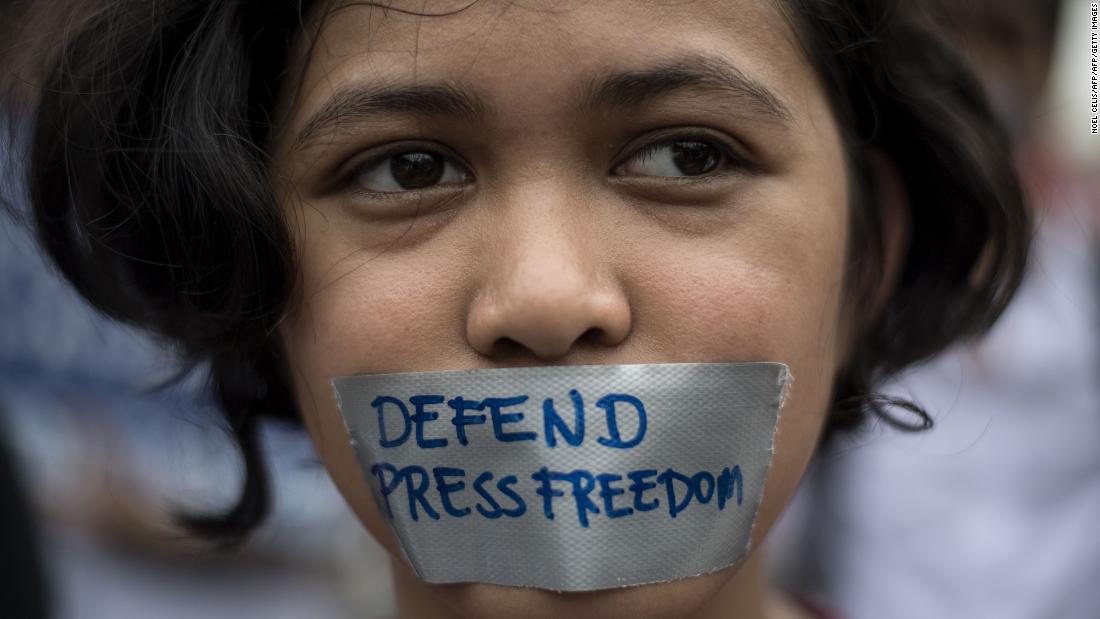
A college student participates in a protest to defend press freedom in Manila.
Shutdown threat
Last week, the Philippines Securities and Exchange Commission (SEC) -- ostensibly an independent, non-political organization -- announced that it would be rescinding the license for the online news site Rappler.
At the heart of the issue was a claim by the SEC that Rappler, an upstart online news portal in the Philippines, had violated the country's constitution and that its registration would be revoked over foreign ownership rules. Rappler has strongly denied the claims.
The news organization, which was founded in 2012, has in recent years reported extensively on the Duterte administration's bloody, controversial war on drugs.
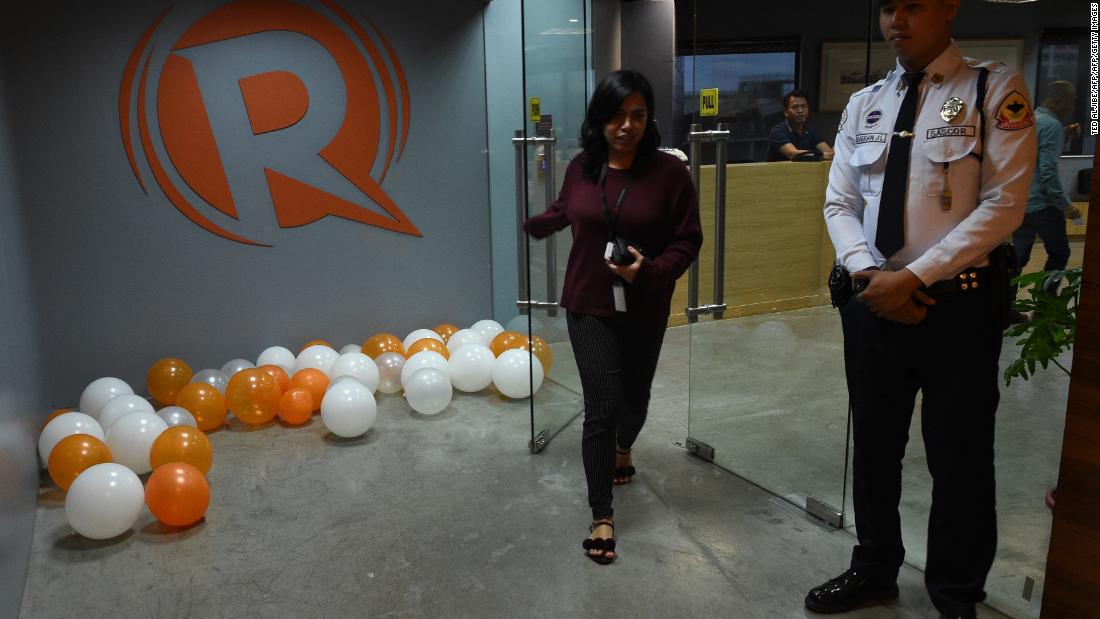
An employee of online portal Rappler heads out from their editorial office in Manila on January 15, 2018, while a private security guard stands.
"Why were we given such a harsh penalty? It seems linked directly to the criticism, the questions we continue to ask in holding the government accountable," Rappler founder and CEO Maria Ressa said.
Presidential spokesman Harry Roque told CNN affiliate CNN Philippines that the office of the president had "nothing to do with the SEC decision."
Following the threat of closure, Rappler reported that the Department of Justice and its National Bureau of Investigation had summoned Ressa -- who is a former CNN reporter -- in a subpoena for a libel case for a story written in 2012.
She says that the SEC and DOJ actions are attempts to intimidate her outlet, and has vowed to explore every available legal avenue.
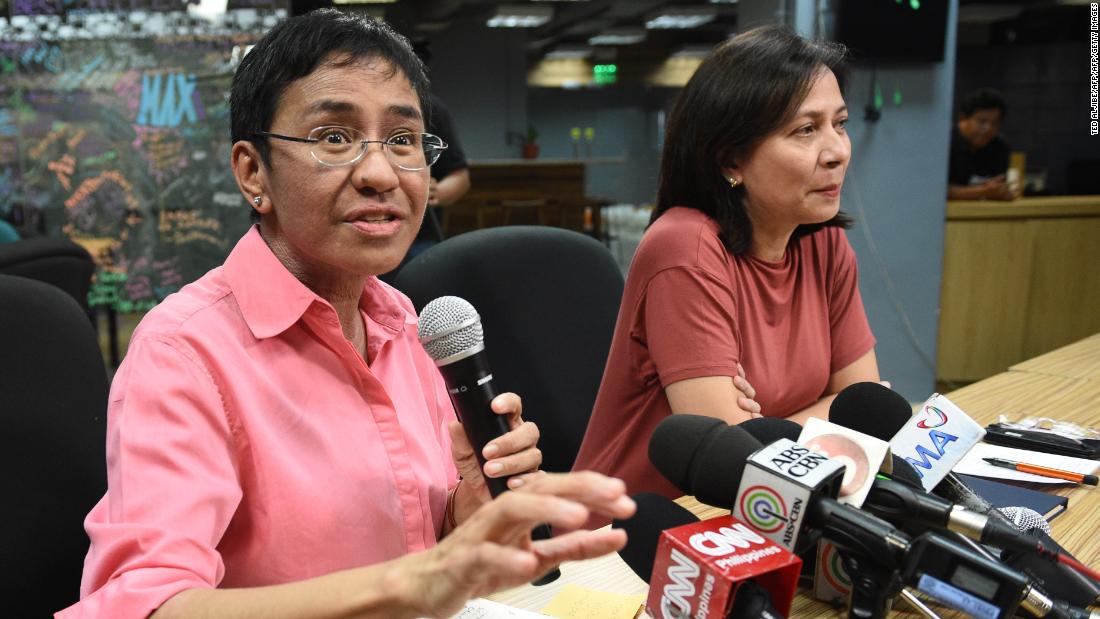
Maria Ressa, CEO and founder of Rappler, speaks during a press conference at their office in Manila on January 15, 2018.
'Fake news'
Duterte has been disparaging of the media -- taking his cues, some analysts say, from Trump's own playbook.
"What we're seeing now is, again, the term 'fake news' cropping up and that's what Duterte's used against Rappler," says Peter Greste, Professor of Journalism at Queensland University.
"(That) follows President Trump's lead, in branding any news organization that he doesn't like, or any news organization which will publish a story that is uncomfortable to his government, as fake news."
Greste, a former Al Jazeera journalist, spent more than 400 days in captivity in Egypt on charges that included conspiring with the Muslim Brotherhood, spreading false news and endangering national security.
Trump has "shown no inclination to criticize or oppose (authoritarian) regimes," he says.
Indeed, the Philippines is not alone in its leaders aping the US leader's "fake news" catch-all.
"Trump's use of the phrase 'fake news' to diminish criticism has traveled far, it's not only Duterte in the region -- other leaders take their cue from Trump as well," says John Nery, an associate editor at the Philippine Daily Inquirer, another publication to have been the focus of Duterte's ire -- he has called it "bullshit," alongside another Philippine outlet, ABS-CBN.
"You put out garbage. Somebody should tell you now, you sons of bitches, you engaged in too much foolishness," he reportedly said in a March 2017 speech at the presidential palace.
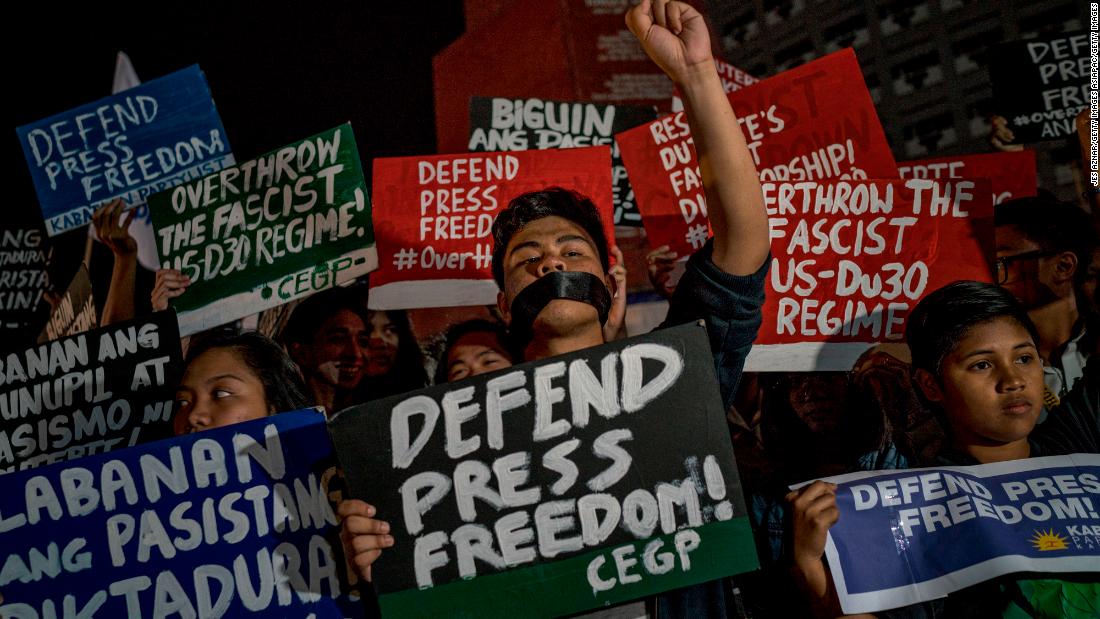
Journalists and activists stage a protest calling to defend press freedom on January 19, 2018, in Quezon City, Metro Manila, Philippines following the SEC decision to withdraw Rappler's license.
The Pope has a message on 'fake news' for Trump
Region-wide trend
Among those leaders is Myanmar's de facto ruler, Aung San Suu Kyi, who, amid criticism of her country's military, dismissed reports of mistreatment of ethnic Rohingya in Myanmar's Rakhine State as a "huge iceberg of misinformation."
The country is now seeking to charge two Reuters journalists covering the crisis, Wa Lone and Kyaw Soe Oo, under the Official Secrets Act, a colonial-era law which carries a maximum 14-year jail sentence.
In a statement sent to CNN, Reuters editor-in-chief Steve Adler called the detentions "a wholly unwarranted, blatant attack on press freedom. Our colleagues should be allowed to return to their jobs reporting on events in Myanmar."
News Courtesy: www.cnn.com

